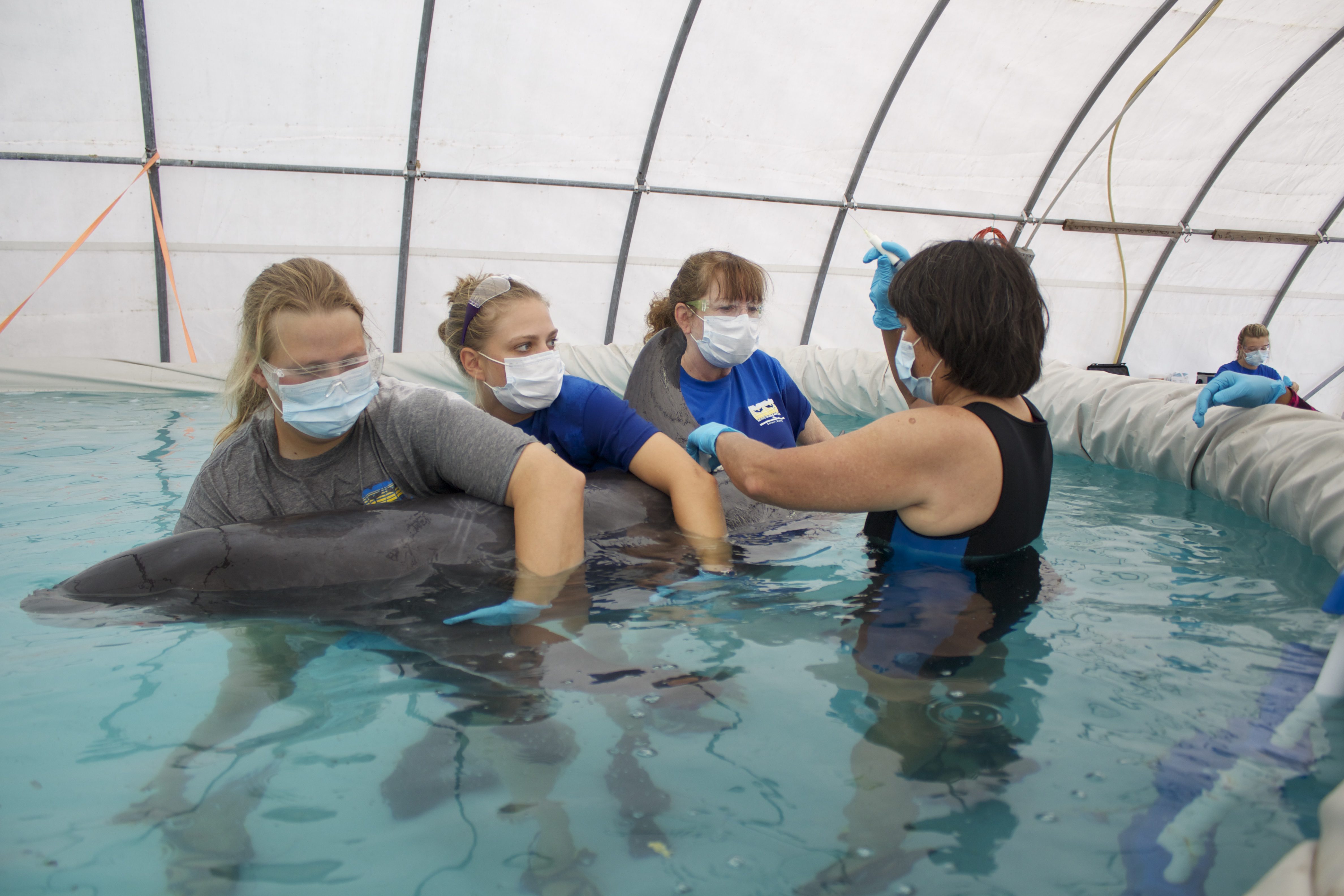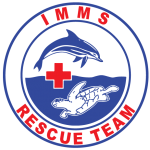
The Institute for Marine Mammal Studies (IMMS) has been actively involved in the rescue, rehabilitation, release and research of stranded marine animals since its establishment in 1984. We are an active participant of the National Stranding Network and respond to all reported marine mammal strandings along the coast of Mississippi, as well as to some within our neighboring states of Louisiana and Alabama.
Largely, stranding events still remain an enigma to the marine mammal scientific community since many times the cause of death of the animals is unclear. For this reason, many coastal areas of the U.S. study stranded animals to better understand why this phenomenon occurs in nature.
Over the years IMMS has been involved in a number of live strandings. Some of the stories and photos can be viewed from this page. However, not all strandings are live; in fact the vast majority of animals that strand are dead. Though there are different species of marine mammals that strand, most of them found along the Mississippi Gulf Coast are Atlantic bottlenose dolphins, as they are by far the most abundant marine mammal in the Mississippi Sound.
What should you do for a stranded dolphin?
If you find a live stranded or injured dolphin on the beach call for help immediately. Do not touch the animal without direction from IMMS or another governing agency such as NOAA or MDMR. Please be aware that when an animal strands, it may be sick. Therefore, please use every precaution to protect yourself from any infectious diseases live dolphin stranding is an emergency and the speed of response by a professional rescue team is perhaps the most crucial factor in determining whether or not the animal will survive.
What is the current “success rate” of rescuing and rehabilitating dolphins?
This is a difficult number to quantify and measure in a standard and systematic way. Though most dolphins and whales that strand have a very small chance of survival, the individual animal’s chance of survival depends largely on several factors. The most significant of these factors include what condition the animal is in when it is discovered, the species of the animal and the expertise of the staff and facility that respond and care for the animal.
Who should be contacted if a stranded dolphin is found?
Your local marine mammal stranding network should be called immediately. Call local police if you do not know the number of the nearest marine mammal stranding network. If you live in the Mississippi Gulf Coast area, coastal Alabama or Southeast Louisiana, you can call IMMS at: 1-888-SOS-DOLPHIN (1-888-767-3657), and we will either respond or contact the appropriate neighboring stranding network.
Why should we study dead dolphins?
This is a question many people ask when they learn of stranding research. The reason is because we can retrieve an enormous amount of information from the animal’s remains. By studying the geographic location of the stranded animal, the size and condition of the remains, tissue analysis, teeth, and other such important data, we can extract information about possible causes of death, trends in dolphin strandings, the estimated geographic origin of the animal, and the overall health of the dolphin populations that inhabit these waters.
Dolphins are at the top of the food chain in their marine environment, which makes them a great indicator species of the overall health of their ecosystem (the ocean waters they inhabit). If we identify an environmental problem through studying the dolphins, we as humans can expect to be next in line to be affected by this same problem as we live on some of the same fish and other creatures found in these waters. In addition, coastal communities by definition live next to the ocean and use the waters for other commercial and recreational purposes that can affect human health. By studying the stranded dolphins we can attempt to monitor the health of the dolphin populations in local waters and the health of the entire ecosystem. We can then use this information to better manage our resources and to take the best care possible of the wild dolphins and the oceans in which they live.
DOLPHIN RESCUE HOTLINE: 1(888)SOS-DOLPHIN (888-767-3657)


